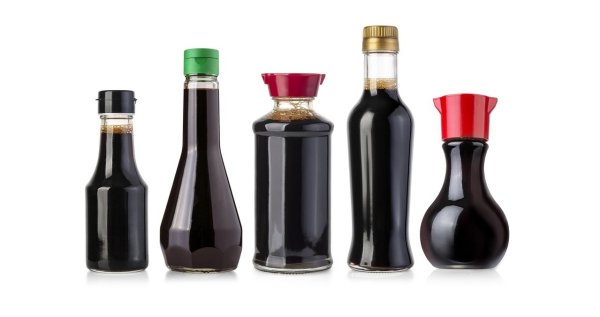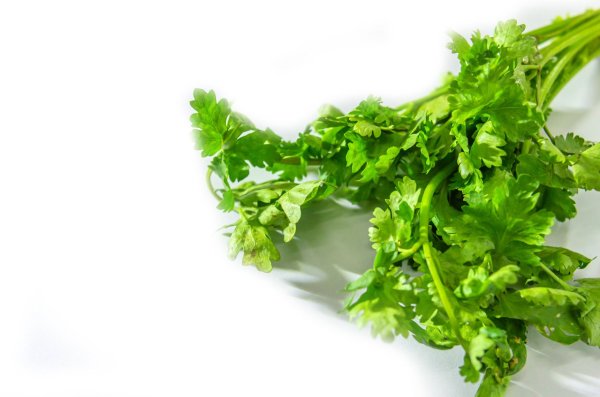The kitchen is clean but smells bad all the time? These 10 common foods may be to blame

When you walk into the kitchen, you always want to smell fresh. Most of the time, as long as you clean it properly and make sure the trash can is smell-free, you can prevent kitchen odors from spreading; however, sometimes even if you clean it thoroughly, there will still be lingering odors in the kitchen, which may be related to specific foods. Most foods have an attractive taste, but some foods have pungent odors that can make your kitchen stink without even realizing it. Daily Meal lists 10 foods that can cause odors in the kitchen, and some of them may be surprising.
1. CauliflowerWhite cauliflower is a versatile and convenient dish, but it is notorious for emitting an unpleasant smell similar to stinky farts. The longer it is boiled, the stronger the smell will be. The reason is that white cauliflower is rich in sulfur compounds. Since white cauliflower is easy to overcook and the smell is difficult to suppress when cooking, the odor can quickly spread throughout the kitchen. Cauliflower has a stronger flavor than older or stale cauliflower.
If you want to eat cauliflower, you can steam the cauliflower florets so that the smell is not too strong; or add milk or lemon wedges to cover up the taste when boiling. Regardless of the cooking method, remember to cook it until it becomes soft and not too mushy.
2. FishMany people know that fish has a strong smell, and the smell of seawater fish is stronger than that of freshwater fish. The main reason is that the trimethylamine oxide (TMAO) in the fish meat will be converted into trimethylamine (TMA) during the cooking process; if the fish has been placed in the store for a period of time and is not fresh, the fishy smell will also be stronger.
Some people may think that buying freshwater fish instead will not cause odor in the kitchen. Although the smell of freshwater fish is not that strong, it still has an earthy smell. The good news is that wrapping the fish in baking paper or soaking it in milk and squeezing lemon juice before cooking can prevent the fishy smell from dispersing. Remember to open the window to maintain ventilation during the cooking process.
3. Specific types of cheeseSome cheeses, especially aged types, usually have a very pungent taste, and the rind of some cheeses has been washed with various liquids, such as Limburger cheese washed with salt water and Stinking Bishop cheese washed with pear wine, which will also make the cheese taste very strong.
If you want to eat these cheeses but don’t want the kitchen to be full of stinky smells, the easiest way is to open the doors and windows to ventilate, or light scented candles. In the most extreme case, you can brew coffee with hot water and add strong spices to let the fragrance spread into the kitchen.
4. DurianDurian has a great flavor, but it exudes an unpleasant rancid smell that spreads quickly when opened. According to a 2012 study published in the Journal of Agricultural and Food Chemistry, durian contains 44 compounds that give the fruit its unique smell. Among them, hydrogen sulfide and methyl mercaptan are the main culprits of rancid smell. Ordinary air fresheners have no effect, but you can put a bowl of dry coffee grounds in the kitchen to absorb the odor. Adding charcoal or baking soda to water can also neutralize the odor, allowing you to enjoy durian with peace of mind.
5. Boiled eggsWhen making omelets or poached eggs, eggs usually do not smell bad, but hard-boiled eggs tend to emit a strong fishy smell, especially overcooked eggs. The reason is that the chemical reaction in the eggs produces hydrogen sulfide, which makes the kitchen smell wafting. The solution is just to add some vinegar to the water before boiling the eggs. You should also choose fresh eggs and don't overcook them. Take out the boiled eggs and soak them in cold water immediately to prevent them from continuing to cook.
6. Deteriorated cooking oilGood quality cooking oil will not fill the kitchen with odor, but repeated cooking will produce odors until it deteriorates. If you have used the same pot of oil to fry snacks repeatedly and the oil turns dark in color and emits a horrible smell, it is best to pour it out as soon as possible. In addition to the odor, rancid oil is also bad for your health. If cooking oil is not stored properly and is exposed to sunlight, it will quickly develop odors.
If the air freshener cannot remove the odor, you can boil a pot of water with vinegar to neutralize the odor, or light a scented candle and open the window for ventilation. Putting some used tea bags or dry coffee grounds can also absorb the odor.
7. Brussels sproutsOvercooked Brussels sprouts will emit hydrogen sulfide and produce a smell, so some people are afraid to eat it at all. In fact, you can roast or fry it instead, so that the smell will not be too strong; or you can drizzle oil or spices on the Brussels sprouts or add them to salads and eat them raw to reduce the smell. If you still need to boil it, remember not to boil it for more than five minutes, and open the windows while cooking to allow the smell to escape.
8. Overripe fruitsEven if overripe fruits are not broken, they will emit a smell that makes the kitchen smell bad, mainly caused by compounds such as ethanol, acetic acid and butyric acid. If there are a lot of overripe and rotten fruits in the kitchen, it is best to throw them away as soon as possible to avoid the odor; if there is still an odor after processing, use the conventional methods of opening windows and lighting scented candles to eliminate it. Fruit that is overripe but not smelly can be put to good use in jam.
9. OnionsOnions contain propyl sulfoxide, a sulfide that can leave hands, dishes, and the kitchen filled with lingering odors. If you want to avoid the smell when chopping onions, cut them with other foods that have strong but pleasant smells. Baking bread or cooking foods sprinkled with spices can also mask the onion smell. An easier way is to boil water with spices and herbs and citrus slices, or light a scented candle. Remember to do this before you start chopping onions.
10. Certain types of fermented foodsFermented foods such as sauerkraut or kimchi may fill the kitchen with an unpleasant smell because the hydrogen sulfide produced during the fermentation process causes the odor, but there is nothing wrong with the food itself.. There are also specific fatty acids that smell similar to body odor and bloating, but there is no need to avoid eating fermented foods. Just remember to open the doors, windows and air purifier when taking food, and then leave the kitchen and wait for the smell to dissipate naturally.















